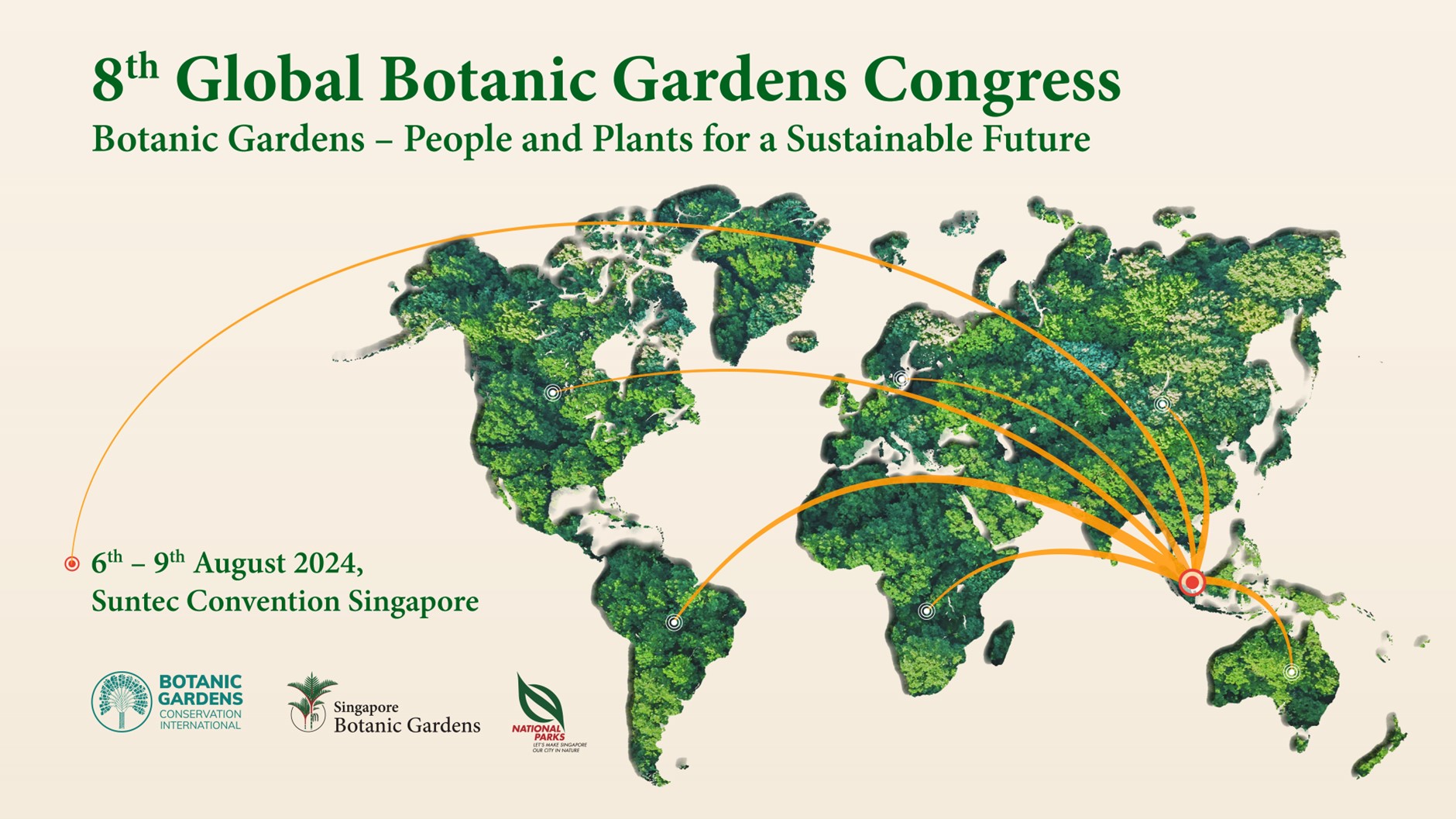Reflections on the 8th Global Botanic Garden Congress, Singapore
-
Region
Global -
Programme
BGCI -
Workstream
Inspiring and Leading People -
Topic
About BGCI -
Type
Blog -
Source
BGCI
News Published: 27 August 2024
Reflections on the 8th Global Botanic Garden Congress, Singapore by Dr. Paul Smith
To the 700 plus people who attended the 8th Global Botanic Garden Congress in Singapore (August 5-9th) in person, and the hundreds more who followed sessions online, this event will still be fresh in your minds, and I wanted to capture a few thoughts and reflections myself before I’m plunged back into my day-to-day tasks. My overwhelming feeling is of being grateful to be part of an incredibly strong and committed community – attending the Congress was like receiving a warm hug from an old friend. Secondly, and not too far behind, I feel empowered by what I saw and heard. It feels to me as though we have become a movement, a cause, centered on creating a better world, in harmony with nature, valuing and protecting biodiversity, and a world in which humans are nurturing rather than exploitative. It helped enormously that the Congress was hosted by Singapore – a city and state that for the last six decades has actively strived to achieve a balance between nature and people that is manifest in its green spaces, green architecture and magnificent public gardens. That this has been achieved in one of the most densely populated places on the planet is an inspiration to all.
More specifically, BGCI is hugely grateful to the staff of Singapore Botanic Gardens, who worked tirelessly to host an exceptional congress.
I was particularly encouraged by the work that our community of botanical and forestry organisations is doing in species recovery, ecological restoration, sustainability, climate change adaptation and public engagement but there are also challenges that we urgently need to address if we are to maximise our impact. BGCI’s International Advisory Council meeting on the Sunday before the Congress was attended by a record number of 42 botanic garden directors from five continents, and in this meeting much of our focus was on the illegal plant trade. BGCI, IUCN and its partners will be launching a global public awareness campaign next year targeting consumers who unknowingly buy plants illegally and unsustainably harvested from the wild. However, as BGCI’s latest Technical Review shows, there is much more that we can do – including supporting customs and law enforcement, providing plant rescue facilities, working with the horticultural industry to enable and regulate sustainable production, and of course leading efforts to recover species. In carrying out these tasks, at best we are often unrecognized and at worst our efforts are stymied by bureaucracy and other impediments including, most importantly, being hugely under-resourced. I believe that, using our collective power, now is the time to negotiate a mandate and contract with the CITES Secretariat and the Parties to that Convention. We need to be seen as a crucial ally, not as an irrelevance or a problem.
A similar challenge confronts us with the Convention on Biological Diversity. There is now overwhelming evidence that an unintended consequence of the Nagoya Protocol is a dramatic reduction in the international exchange of plant material, knowledge and data, especially related to wild collected material and threatened plant species. Of the 400,000 plant species documented to date, an estimated 40% are threatened with extinction. That is 160,000 plant species that we need to manage and conserve. Gone are the days of botanical stamp collecting – every ex situ collection is an opportunity to learn how to grow, manage and conserve that plant species. The problem is that 85% of botanical capacity is in the northern hemisphere – we need to dramatically increase the exchange of knowledge, material and data, not reduce it. The mechanisms are in place to ensure that national sovereignty and ownership are respected and that benefits are shared, and yet our institutions are still subject to the same laws as commercial nurseries. As with CITES, I believe we need to negotiate a contract with the CBD Secretariat and the Parties to the Convention that clearly defines our role, removes bureaucratic impediments, and mobilizes funding to support our efforts.
For the first time, I believe we have the critical mass, coherence and leadership through our International Advisory Council that is needed to make the strongest possible case for our community, and that is exactly what we will do. More to follow.

Become a Member
Be part of the largest network of botanic gardens and plant conservation experts in the world by joining BGCI today!
Support BGCI
You can support our plant conservation efforts by sponsoring membership for small botanic gardens, contributing to the Global Botanic Garden Fund, and more!